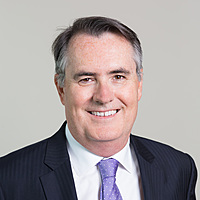How to find a dividend champion
All investing strategies need to evolve with market conditions, and in particular to the current stage of the cycle. So in constructing an income portfolio to perform today, Chris Hall, Chief Investment Officer at Ellerston Capital first classifies income stocks by three categories, the first being ‘dividend champions’. He describes these as:
“Really resilient business models which can generate great revenue, great margins, great revenue growth, great cash flow, and most importantly, great dividend growth without too much influence from the economic cycle”.
Chris provides some examples in this extract from a recent interview and explains his three categories in more detail.
Edited transcript
I split them into cyclical yield, defensive yield, and dividend champions. The reason I do that is because, again, a lot of income funds, the perception is that they're all defensive and they'll just be bond proxies.
Well, actually, the way the market's changed, because of the conditions I mentioned before with business disruption and the like, there are pockets of the markets in the cyclical space which are offering really, really good income growth, sustainable income growth.
Part of my skill set is to be able to tie in where we are in the cycle and what dividend strategy is applicable for where we are in the cycle. If we look at some examples, so for cyclical yield, you normally want to be more heavily weighted towards that when you have bond yields rising, and economies improving, in a normal cycle.
For defensive yield, you're more normally in that bucket when yields are falling, bond yields are falling, economic conditions are slowing, and that puts you in sectors like A-REITs and consumer staples and utilities and the like. The cyclical side would have been more materials and financials and consumer discretionary.
Then you have the dividend champions which are good throughout all cycles. And they're ones that have just got really, really, resilient business models, which can generate great sales revenue, great margins, great revenue growth, great cash flow, and most importantly, great dividend growth without too much influence happening from the economic cycle.
They're not easy to find, those stocks, but they are out there. The compounding effect of income is what really is the key focus. When people look at valuations, some of these stocks may look expensive, but if you look at where the income generation has flown over the last say four or five years, it's been very, very powerful.
If I take a company like Aristocrat, which we hold in the portfolio, the compound dividend rate for that stock over the last five years is about 20% per annum. Now, it's not a high yielding stock optically, it's on about 2% yield, but the compounding effect of that is extraordinary over that time frame. That's the case in point that I'd single out. As a business model which I think has got a great deal of longevity, because of the nature of their business and their competitive advantage in gaming, and in gaming software, that I think that's sustainable.
Another one that you could put in that camp would be CSL, for example. Again, had a really good result recently, and that's a company which has delivered a very, very decent compounding dividend growth. They're in a very, very unique position with their business model. Their competitors are struggling with regard to getting adequate plasma supplies, so look, their business structure looks really compelling and that's long term.
They've got a great R&D program to continue that flow. That's another example of a stock which is not optically high from a dividend yield perspective but has just got this compounding effect that flows through.
Don't get caught in a trap
The Ellerston Low Vol Income Strategy (ELVIS) has a clear focus on delivering low volatility, sustainable income for investors through the market cycle. For further information use the contact button below, or visit their website.
1 topic
1 stock mentioned
1 contributor mentioned


